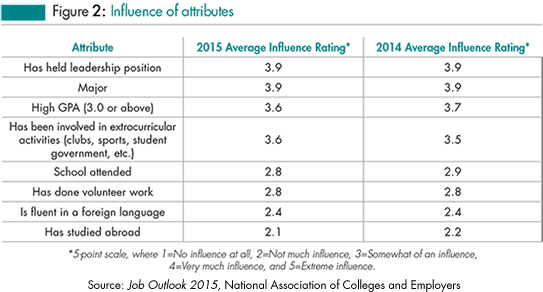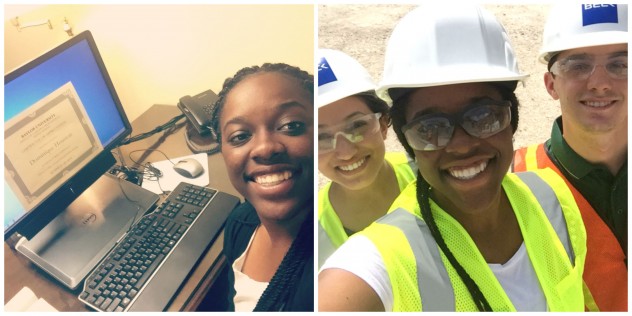It’s important to dress your best for an interview AND a career fair. But it’s hard to always know what is appropriate to wear and what is not. Here you’ll find some quick-tips to help you look your best and dress for success.
- Women’s Business Attire
- A dark or gray-colored pant or skirt suit
- A solid-colored blouse
- Flats or pumps with a mid or low heel
- Natural makeup
- Simple jewelry
- Grooming: Hair combed and/or pulled back
- Women’s Business Casual
- Dress pants or pencil skirt
- A solid-colored blouse, top, button-down or cardigan
- Flats or pumps with a mid or low heel
- Natural makeup
- Simple jewelry
- Grooming: Hair combed and/or pulled back
- Men’s Business Attire
- A dark or gray-colored business suit
- A solid-colored button-down shirt (light-colored or white), subtle pinstripes
- A solid or subtle patterned tie
- Belt and socks (black or brown)
- Dress shoes (black or brown)
- Grooming: hair combed, facial hair trimmed/shaved
- Men’s Business Casual
- Dress slacks or khaki pants
- A solid-colored button-down shirt (light-colored or
- white), subtle pinstripes
- A solid or subtle patterned tie
- Belt and Socks (black or brown)
- Dress shoes (black or brown)
- Grooming: hair combed, facial hair trimmed/shaved
What NOT to wear
Women
- Sleeveless, thin-strapped or strapless dresses and tops
- Low cut or revealing dresses or tops
- Skirts or dresses that are too short. Hems that reach the knee or a little above the knee are the best options!
- T-shirts, shorts, jeans or workout clothing
- Open-toed shoes, sandals or tennis shoes
- Heels that are too tall. 2 inches or lower is the ideal heal size.
- More than 4 pieces of jewlery
- Grooming: heavy perfume, unbrushed hair
Men
- Loud patterned shirts or ties
- T-shirts, short sleeve shirts, shorts and jeans
- Flip-flops, sandals and tennis shoes
- Bare feet (always wear dress socks)
- Rolled-up sleeves
- Sunglasses
- Hats or ball caps
- Grooming: messy hair, untrimmed beard or stubble on your face
Things You Should Know
- Keep it clean, first impressions are important. Consider taking out your piercings and covering up your tattoos.
- You should cut the threads (usually is the shape of an “X”) that hold the vents (or flaps) together on new suits, blazers and skirts.
- Avoid wearing strong perfumes or lotions. Remember some people can be overpowered by smells.
- You should wear your name tag on your right side so the person shaking your hand will not only hear your name, but also see it.
- Leave phones, sunglasses, lanyards, backpacks, or anything that could be distracting in your car or at a designated storage space.
- Dressing for success doesn’t have to cost a fortune—think outside the box! Check out reasonably-priced stores such as Target and Walmart, or even local consignment shops like Goodwill and Salvation Army. And don’t hesitate to borrow from someone!
Brought to you by: Ashley Alcala












 Ever thought about working overseas after college? Are you planning to study abroad during your time at Baylor? Are you at Baylor on a student visa, and interested in working in the United States after graduation? If you answered “yes!” to any of these questions, then GoinGlobal is a great resource for you to learn about career opportunities and apply for jobs.
Ever thought about working overseas after college? Are you planning to study abroad during your time at Baylor? Are you at Baylor on a student visa, and interested in working in the United States after graduation? If you answered “yes!” to any of these questions, then GoinGlobal is a great resource for you to learn about career opportunities and apply for jobs.
